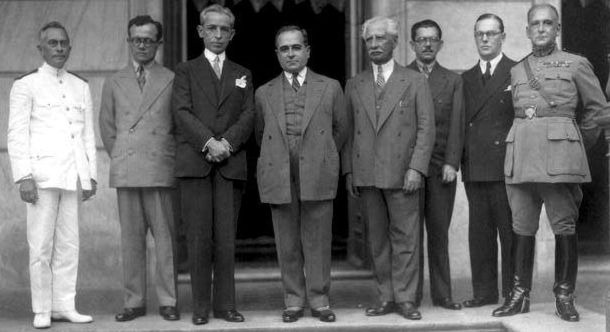For greater understanding of a troubled period that has been the government of Getúlio Vargas (1930-1945) since its inception, even more so with the implementation in 1937 of his state New, I believe that it is very important to read the most varied authors who committed and dedicated themselves to thinking, studying and researching the history of these 15 years of government.
Reading these studies, always done with a critical eye, will clarify and show the difference between more recent authors and those who have already written a few decades ago.
The oldest studies try to explain what the Estado Novo was, its government structure, the political environment of the time, there was no in-depth and enlightening critical analysis. As Elizabeth Cancelli guides us “the reason and therefore the adjective used by historical literature, instead of analysis, it is what the studies did not touch in what Foulcault said was fundamental: how, why, where, and for what action to become aimed”.
Thus, the most recent authors – not in general – have a more critical and scientific analysis; incisive and profound, thus showing us what historiography had not yet addressed.
Do not stop now... There's more after the advertising ;)
These are studies such as those by Cancelli, 1993; Leiko Tanno, 1996; Castro Gomes and many other contemporary authors who lead us to think about the structure of society in the period of the Vargas government and the Estado Novo, address it as a whole, analyzing the policy and repression of this government and its implications and consequences in the midst of this society. Because Vargas' policy of action affected everything and everyone, some groups more intensely, others less, but society suffered from the politics and repression of this totalitarian state.
The historiography prior to this one, more descriptive in the facts, studies the instance and the political moment of society and the State governed by Getúlio Vargas. It lets out topics and debates that are much more interesting and enlightening than those discussed, and that is why the extreme importance in reading and understanding these "two phases" of our historiography that deal with this time and government.
Per Amilson Barbosa Henriques
Columnist Brazil School
Would you like to reference this text in a school or academic work? Look:
RODRIGUES, Lana Julia. "The historiography of the Vargas period"; Brazil School. Available in: https://brasilescola.uol.com.br/historiab/a-historiografia-periodo-vargas.htm. Accessed on June 27, 2021.


